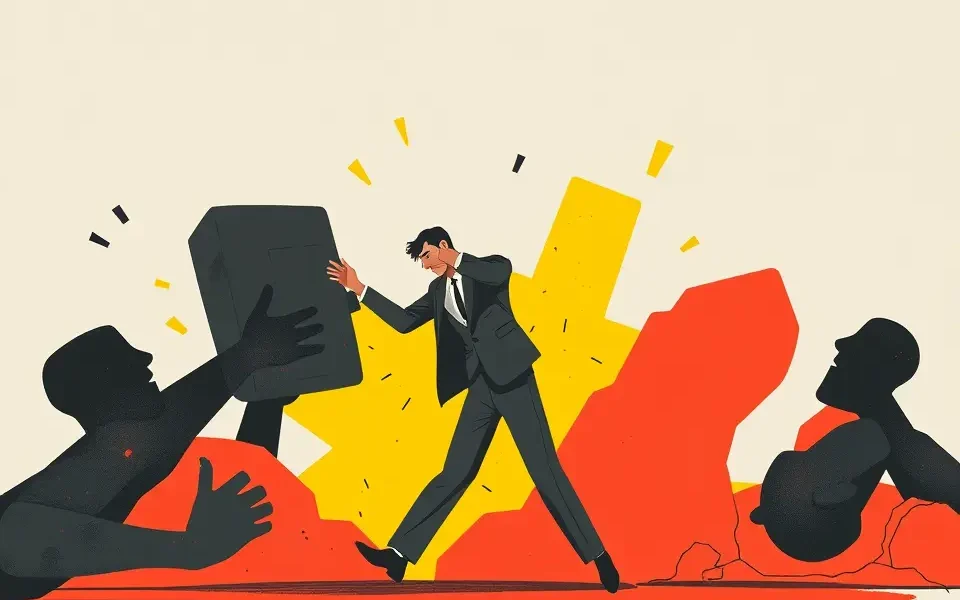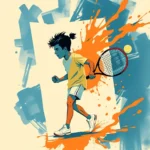Novak Djokovic, one of the most dominant figures in tennis history, often finds himself under intense scrutiny. Despite his remarkable achievements, including a record-breaking number of weeks at world No. 1 and an unmatched collection of Grand Slam titles, he frequently faces criticism regarding his on-court behavior, off-court decisions, and even his playing style. However, even in the face of such criticism, Djokovic often finds support from fellow players, figures within the tennis world, and fans who recognize his contributions to the sport.
The Weight of Criticism
Throughout his career, Djokovic has faced numerous controversies. Some stem from his on-court conduct, where his emotional outbursts have sometimes been viewed as unsportsmanlike. Tennis commentator Rennae Stubbs pointed out instances such as smashing the net at the French Open and throwing his racquet, which nearly hit a ball kid. These incidents contribute to a perception that Djokovic lacks the graciousness often associated with his rivals.
Off the court, his stance on the COVID-19 vaccine and the organization of the Adria Tour also drew heavy criticism. His refusal to get vaccinated led to him being banned from the Australian Open in 2022, sparking public backlash, with many deeming his stance irresponsible during a pandemic. The Adria Tour, organized by Djokovic, faced condemnation for neglecting proper health protocols, leading to several players, including Djokovic himself, testing positive for COVID-19.
Even his style of play has been a point of contention. Some critics have described his baseline game as “mundane,” suggesting it diminishes the skill involved in tennis. Pat Cash, a legendary tennis player, went so far as to say that Djokovic’s style has “taken a lot of the skill out of tennis.”
A Familiar Scenario: The Australian Open 2025
More recently, during the 2025 Australian Open, Djokovic faced a mix of support and condemnation. After retiring from his semi-final match against Alexander Zverev due to a muscle injury, he was met with boos from some fans at Rod Laver Arena. This reaction ignited a debate, with many questioning the legitimacy of his injury.
Djokovic responded to the criticism, stating: “I know how my body works, what I feel, and I know how much I’ve given to this tournament in the past 20-plus years. I will stop here, so that I don’t continue (speaking) in the wrong direction.” He also addressed comments from John McEnroe, who suggested he might have been exaggerating the injury. Djokovic acknowledged that criticism is easier than understanding and expressed a degree of understanding for the fans’ disappointment.
Support Amidst the Storm
Despite the criticism and jeers, Djokovic received support from various corners. Alexander Zverev, his opponent in the ill-fated semi-final, defended Djokovic, imploring the crowd not to boo a player leaving due to injury, emphasizing that if a player cannot continue, it signifies a genuine inability to do so.
Additionally, reports surfaced of fans who, despite spending significant sums on tickets, expressed understanding towards Djokovic’s situation. One fan from Singapore, who spent $1200 on tickets, said, “We flew over from Singapore so it’s really sad to not see a five-setter but equally we felt so bad everyone was booing because as if he wouldn’t want to win another Australian Open title.”
Echoes of the Past: Support During the 2022 Australian Open Controversy
The 2022 Australian Open saga provides another example of the complex interplay between criticism and support that Djokovic often navigates. His detention and visa cancellation due to his vaccination status sparked widespread debate. While many criticized his stance, he also received notable support.
Nick Kyrgios, a player who had previously been critical of Djokovic, surprisingly defended him, criticizing the way Australian authorities handled the situation. He tweeted, “Look I definitely believe in taking action, I got vaccinated because of others and for my mum’s health, but how we are handling Novak’s situation is bad, really bad. Like these memes, headlines, this is one of our great champions but at the end of the day, he is human. Do better.”
John Isner, another American player, echoed similar sentiments, stating that Djokovic had followed all the rules and did not deserve such treatment. Marin Cilic also hoped for a swift resolution, acknowledging that the situation was not positive for tennis.
Official Backing
The Professional Tennis Players Association (PTPA), an organization founded by Djokovic, stood by him, confirming his well-being and stating that he would share the facts of his detainment in his own time. The support even extended to the Serbian government, with President Aleksandar Vučić accusing Australia of political persecution.
The Enduring Enigma
Djokovic’s career is marked by a constant negotiation between unparalleled success and persistent criticism. While his achievements on the court are undeniable, his personality and decisions often polarize opinions.
One thing that remains clear is his resilience. Despite facing adversity, Djokovic has consistently bounced back, using criticism as fuel to drive his performance. He continues to strive for excellence, aiming to solidify his place as the greatest tennis player of all time.
The Bigger Picture: Why Does Djokovic Divide Opinion?
To truly understand the “backing” Djokovic receives and the “firm warning” implied to his critics, it’s important to delve deeper into the reasons behind the polarized opinions surrounding him. It’s not simply about wins and losses; several factors contribute to the narrative:
1. The Federer-Nadal Factor
Djokovic emerged during the era of Roger Federer and Rafael Nadal, two of the most beloved figures in sports history. Their contrasting styles, impeccable sportsmanship, and seemingly effortless grace endeared them to fans worldwide. Djokovic, with his aggressive style, intense demeanor, and sometimes controversial actions, often stood in stark contrast, making it difficult for some fans to embrace him.
2. Perceived Lack of Authenticity
Some critics accuse Djokovic of lacking authenticity, suggesting that his behavior is calculated to win over the crowd. This perception is fueled by instances where he has attempted to mimic crowd favorites or engage in gestures that seem insincere to some observers.
3. Nationalism and Geopolitical Tensions
Djokovic’s strong Serbian nationalism can also be a factor. While pride in one’s country is generally viewed positively, in certain contexts, it can be interpreted as exclusionary or provocative. Geopolitical tensions involving Serbia may also indirectly influence perceptions of Djokovic.
4. The “Underdog” Narrative
Despite his incredible success, Djokovic has often been portrayed as an underdog, battling against the established order and the popularity of Federer and Nadal. This narrative resonates with some fans who appreciate his fighting spirit and determination to overcome obstacles.
5. Unwavering Self-Belief
Djokovic possesses an unwavering self-belief that can sometimes be interpreted as arrogance. While confidence is essential for success in any field, some perceive Djokovic’s confidence as excessive, contributing to negative perceptions.
The Firm Warning: A Call for Balanced Perspective
The “firm warning” to critics isn’t necessarily about silencing dissenting voices. It’s a call for a more balanced perspective that acknowledges Djokovic’s immense talent, dedication, and contributions to the sport. It’s a reminder that:
- Criticism should be constructive: While it’s important to hold athletes accountable, criticism should be fair, informed, and focused on specific actions or behaviors, rather than personal attacks.
- Context matters: Understanding the context behind Djokovic’s actions and statements can provide valuable insights and prevent misinterpretations.
- Respect is paramount: Even when disagreeing with Djokovic’s views or actions, it’s important to maintain a level of respect for his achievements and his position as one of the greatest tennis players of all time.
- Acknowledge his achievements: With 24 Grand Slam titles, a record 428 weeks at No. 1, and a host of other accolades, Djokovic’s place in tennis history is secure. Criticism should not overshadow his extraordinary accomplishments.
Ultimately, the debate surrounding Novak Djokovic is unlikely to subside anytime soon. He remains a complex and compelling figure who evokes strong emotions. However, by fostering a more nuanced and balanced understanding, we can appreciate his contributions to tennis while engaging in constructive dialogue about his actions and their impact.








No Comment! Be the first one.